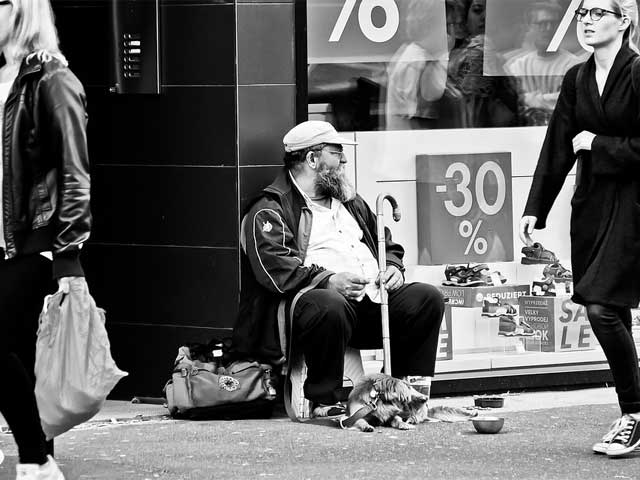Blessed Are The Merciful
I live in Philadelphia, and in parts of the city, streets are populated by homeless people. As you walk past someone begging, you feel a pang of sympathy. How tough must it be to have nowhere to live? What happened in their past that resulted in such circumstances?
A moment later, you have forgotten about that homeless person. You and your friends are talking about your exciting dinner plans for the night. While your heart may felt momentary sympathy, your actions lacked mercy.
Mercy is not just something you feel; mercy is something you do. Mercy is heartfelt compassion that results in action toward the other person.
I love the individuals and organizations who give their lives to show mercy to those who are poor by socioeconomic standards. But there are more ways than this to be merciful because there are more ways than one to be impoverished. (For example, a person can be challenging to live with because they are spiritually and socially impoverished.)
Here are five truths to consider as you strive to become a more merciful person:
1. Merciful people want something more significant than personal happiness.
Mercy finds more joy in doing God’s will than happiness in a comfortable, predictable life. Mercy is willing to forsake personal comfort to bring God’s comfort to someone else. Mercy is more motivated by what God is seeking to do in a relationship than by what we want to get from one.
2. Merciful people expect to suffer and are willing to endure it.
If you want to be a merciful person, you need to adjust your expectations. Mercy requires a willingness to have your life distressed by the weakness of others. Moreover, mercy doesn’t look for a way out when things suddenly become harder than expected. Mercy that doesn’t persevere isn’t mercy.
3. Merciful people live with a commitment to forgive.
Whenever you become involved with people who need mercy, you will inevitably be sinned against. Mercy isn’t hypervigilant, easily irritated, or quickly offended. Mercy forgives a person for an offense without treating them as a criminal or harboring resentment against them.
4. Merciful people do not compromise what is morally right and true.
Extending mercy doesn’t mean I turn my back on God’s law. Mercy points those in the wrong back to God and to the promises and principles of his Word. Mercy understands that grace is a better pathway to change than condemnation but it never compromises what is right and true.
5. Merciful people view themselves as impoverished and in need of mercy.
Our natural tendency is to view ourselves as “rich” and other people as “poor.” The spiritual reality is that we are both impoverished; total depravity and the unearnable mercy of God levels the playing field. None of us has the spiritual upper hand. In the mirror of God’s Word, all of us look the same and need the same.
As you extend mercy to others, you will begin to see how selfish, impatient, unforgiving, and inconsistent you can be. Living a merciful life will show you how much your own heart still needs the mercy of the Redeemer.
Being a merciful person will drive you to the end of yourself and the grace of your merciful Savior. Now that’s a blessed place to be!
God bless,
Reflection Questions
1. When was the last time you felt sympathy and wanted to act but didn’t? What held you back? (Fear, lack of finances, not enough time, didn’t feel equipped, etc)
2. Have you been surprised by how hard it is to show mercy to someone difficult? When was the last time you wanted to throw the towel in?
3. How can you graciously forgive and lovingly correct a wrong without compromising God’s law? Think of a specific example.
4. How have you proven that you are spiritually impoverished and in need of God’s mercy this week? Why should this help you be more merciful to others?
Want to learn more about New Hope Church? Click here.

